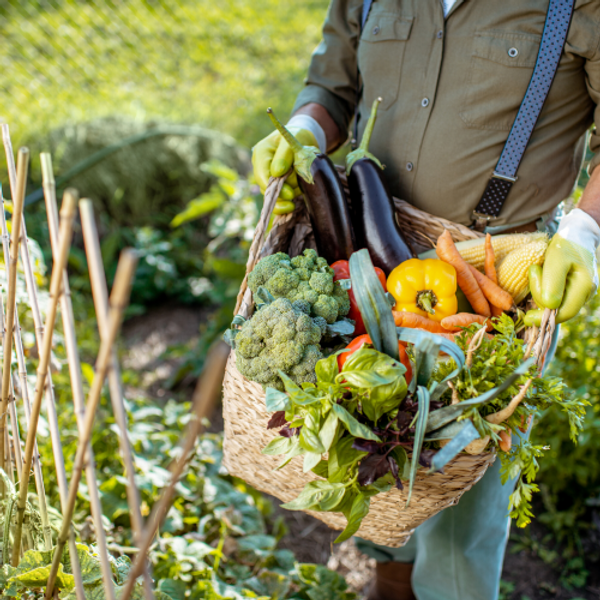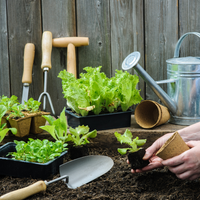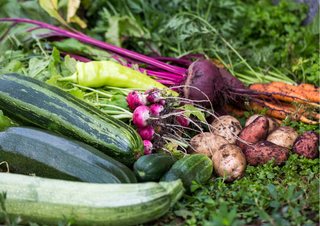What to grow?
by Bruce Beamish, Cancer Council WA Regional Education Officer for the Great Southern
- August 17, 2020
- Leave a comment

What a big decision! Here are some of the things to take into account when deciding what to grow.
Seasonality

Many vegetables are seasonal, so rather than taking up space in your garden trying to grow things that will struggle in unfavourable weather, choose plants that are likely to succeed.
Check with your local nursery or a local grower if you want to know what grows well where you are - but here is a brief overview of some of our favourites.
Cool weather growers
|
Brussels sprouts |
Broccoli |
Broad beans |
|
Beetroot |
Cabbage |
Cauliflower |
|
Garlic |
Kale |
Onions |
|
Potatoes |
Peas |
Silverbeet |
Warm weather growers
|
Basil |
Capsicum |
Chillies |
|
Corn |
Cucumber |
Eggplant |
|
Melons |
Runner beans |
Sweet potato |
|
Tomatoes |
Zucchini |
|
Year-rounders
|
Artichoke |
Asparagus |
Bok choy |
|
Carrots |
Lettuce |
Baby spinach |
|
Rocket |
Strawberries |
Wombok (chinese cabbage) |
Taste
 It’s important to grow what you like to eat! Being stuck with a pile of vegies that nobody will eat or even swap with you can be disheartening and means more food waste. Staggering your plantings will also help you avoid the seasonal glut. We all know someone who has had an excess of zucchinis that they’ve forced on you! If you do end up with more than you can eat, check with local growing groups or on social media for vegie swaps or see if your local food bank is able to take home grown foods.
It’s important to grow what you like to eat! Being stuck with a pile of vegies that nobody will eat or even swap with you can be disheartening and means more food waste. Staggering your plantings will also help you avoid the seasonal glut. We all know someone who has had an excess of zucchinis that they’ve forced on you! If you do end up with more than you can eat, check with local growing groups or on social media for vegie swaps or see if your local food bank is able to take home grown foods.
Space
You don’t need a huge amount of space to have a vegetable patch but be sure to look into your chosen vegie’s needs. A lot of herbs and vegies are very happy in pots, while others need a bit more room or support structures.
Ease
If you’re new to gardening, we recommend trying some “easy” crops to build confidence. Lettuce and rocket, snow peas, beans, rosemary and basil, tomatoes, spring onions and chilies are all pretty hardy and fast growing.
We’d love to hear about how your garden grows! Tag the LiveLighter Campaign in your socials (on Facebook, Instagram and Twitter). We’ve also got loads more tips about gardening over here.







